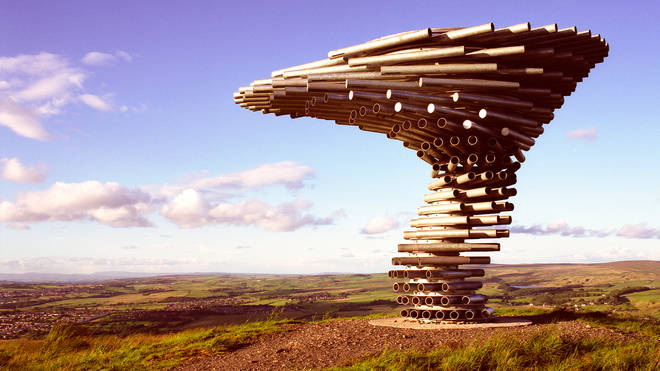The World is _____haunting_____ and too much with us.
I've enjoyed the poetry presentations over the last few days. That's a statement I didn't think I'd say. Somehow, the stakes for this presentation didn't feel as high as others if I failed because I was helping to teach the material, and didn't feel as though I had to know every detail about my topic.
I loved all of the poems, even with the varying levels of obscurity and complexity they all brought. One poem, it seems, has been haunting me for a few semesters, and I haven't found out why yet.
William Wordsworth's "The World is Too Much With Us" is a poem that I've studied, in various classes and in passing, and each time I run into it, there seems to be more meaning. It's intriguing to me because I personally don't find much satisfaction in reading any other poems from Wordsworth. I don't typically enjoy sonnets, I think because of the rigid structure, in the first place.
The first time that I read this poem, over a year ago now, I found it to be shaming consumerism and materialism in the 20th and 21st centuries. I didn't read too much into the lines and allowed the mysteries of the Romantic period to pass, and their Greek references follow. It did leave an odd impression, considering what I knew of the 18th and 19th centuries to be significantly less materialistic than today.
The second time I reviewed this poem was when I was told that I 'didn't understand poetry.' The professor went over the sonnet with me, and I saw a few more images inside the poem, especially those alluding to nature. After taking Romanticism, the elements and awe of nature, and the celebration of the individual stood out to me more because I recognized them as traits common to a literary movement.
The third time that I encountered this poem, today in class, I was shocked to find out that people interpreted this poem differently (and looking back, it feels like a "duh" moment), because I had never taken the time to really dissect the lines and overall images and know Wordsworth's feelings about paganism before this. It was very eye-opening to see that some critics interpret this poem as the world being too much or humanity being too much. I never had seen it that way before, but now I can imagine how that reading would play out.
Also, I noticed just how much Wordsworth plays on the readers' sense of sound, or hearing. He mentions "winds howling," "we are out of tune," and "Triton's wréathed horn," all of which create different images and sounds in this landscape. The frequent relation to sound reminds me of Samuel Taylor Coleridge's poem "The Eolian Harp," which is about a literal harp that people leave in the woods and let the wind/nature play its strings. The sound is haunting and discorded, but somehow it's as beautiful as the natural elements that both of these poets praise.
Above is a modern sculpture of an Eolian, or Aeolian, Harp in Lancashire, England. There are also recordings of the music on Youtube if you're interested.
I'm very glad to have run into this poem a third time and hope that I will continue to encounter it, as it seems to speak differently every time. Perhaps I'll discover why it's returning soon.
Because this is my last post, I want to thank everyone for following along! Best of luck during finals week!


Comments
Post a Comment